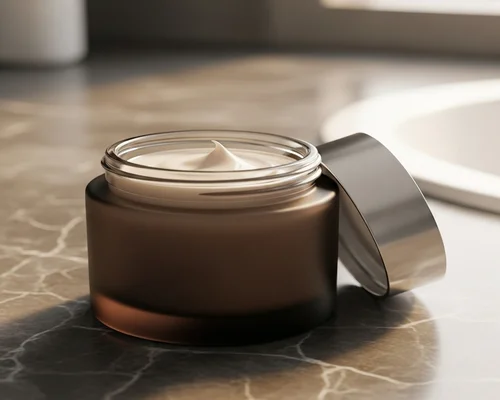
Plants from which Miswak is made
Plants from which Miswak is made
Miswak or toothpick is a widely used method in Islamic and natural medicine. Miswak can be made from many plants, but some plants are particularly useful and common.
Plants from which Miswak can be made:
1. Pilu tree or Arak (Salvadora persica)
Pilu tree is found in salty and barren lands in various parts of Punjab. The fibers of the Pilu tree are very soft and smooth. This tree contains a large amount of chemical elements called Calcium and Phosphorus. Which are necessary for our body in physiology. (See the detailed Miswak and chemical elements section). When the Miswak of the Pilu tree is chewed in a fresh and soft state, a bitter and radioactive substance comes out of it. This substance destroys or inactivates or prevents the germs inside the mouth.
Other chemical components found in this tree are -
Trimethyl Amine,
Alkaloid called Salvadorine,
Chloride,
Fluoride,
Silica,
Sulfur,
Vitamin C,
Tannins and Saponins,
Flavonoids and Sterols,
Colorants (such as Natural Pigments).
The most widely used and circumcised Miswak
Rich in fluoride, antibacterial elements
Considered the best for teeth
2. Arak Tree
Very popular in the Middle East
Has the same qualities as pilu
This is another name for Salvadora persica (almost synonymous)
3. Bitter Almond Tree
Effective in cleaning teeth due to its bitter taste
Removes bad breath
4. Lemon Tree
It will be beneficial in all diseases - From the ordinary lemon tree - phlegm, nausea, lack of juice in the mouth, from the airy lemon tree - high blood pressure, heart disease, indigestion, etc.
Helps to remove yellowness of teeth
Use in small quantities is beneficial
5. Date palm branches
Easy to digest and non-sag wood
Good for cleaning tooth grooves
6. Acacia tree (Acacia arabica)
Acacia tree is very familiar to us. However, not so much as a miswak. Acacia tree branches can easily remove dirt from the gaps between the teeth.
Gum-rich, strengthens the gums
Beneficial for mouth sores or infections
7. Neem Tree
It is difficult to find a person in Bangladesh who does not know the benefits of using neem tree miswak. Neem tree branches are the best miswak for the people of this country. Neem tree is called Butam. It is known to everyone that a house where there is a neem tree is free from at least ten to twenty different types of 70 pathogens. The shade of the neem tree is also healthy. This tree is used to cure various diseases including scabies, itching, allergic diseases, polyuria, blood disorders, cough, worms, leprosy, bile, acne, liver diseases. Using a miswak made from neem tree can easily provide some benefits. Moreover, the neem tree contains bitter juice which, when chewed, destroys the germs inside the mouth.
Antibacterial, antiseptic
Effective in preventing gum infection, tooth decay
Taste slightly bitter
8. Gurhal or Bakul tree
Strengthens the gums
Reduces the feeling of toothache
9. Rose stem
It is not widely used as a mouth freshener, but is traditionally used in some regions
10. Olive tree or Anam
The branches or roots of the olive tree are available in the form of miswak in various markets or bazaars of the city. They are also available in other ways. Due to the great development of the transportation system, it is not necessary to rush to get something from abroad. If you just have a good idea about that object, it comes to your hand easily, that is, willpower is enough. Miswak made of olive trees provides many benefits. Two of the most important of these benefits are-
a) It removes wounds or sores that have formed in the mouth due to various reasons;
b) If something melts and decomposes in the mouth and creates a bad smell in the mouth, using miswak made of this tree removes the bad smell from the mouth and creates a kind of sweet atmosphere.
A hadith can be mentioned in this regard. Hazrat Muadh (RA) narrated from the Prophet (PBUH) that how good is the miswak made of olive trees! This is the part of the holy tree that cleanses the mouth of bad breath and removes wounds from the mouth. This is my Miswak and the Miswak of the Prophets before me. (Reported by Kanzul Umm al-Tabarani, Source: Hadith-e-Noor and Modern Science, page 40).
To get quick results from Miswak of olive or other trees, you should take out a new piece of Miswak every day and use it.
11. Kani tree
Kani tree has a very bitter taste. Kani tree has two types. It has red flowers and white flowers. If patients who are attacked by the disease pyorrhea are given Miswak of this tree, they can get relief from this disease. Its taste is very bitter, so Miswak of this tree plays a very effective role in destroying the germs inside the mouth.
12. Arjun
Arjun tree is found in almost all regions. The benefits of this tree through Miswak are tuberculosis or erosion, stopping urination, blood in diarrhea, blood in bile, low blood pressure, etc. Moreover, this tree is used to make tonics for heart disease. Therefore, using Miswak of this tree will benefit heart disease. However, those who have high blood pressure or digestive problems should not take the juice of this tree directly. However, there is no problem in using Miswak.
13. Akand tree
Akand tree is not the tree that we call monkey sticks. This tree works in diseases such as toothache, cold, skin diseases, jaundice. As a result, good results are obtained by using miswak from this tree.
14. Pomegranate tree
Pomegranate is a strong astringent and anthelmintic. Apart from this, using miswak from this tree can be beneficial in the following diseases such as indigestion, dysentery, frequent miscarriages in women, heart disease, insomnia, etc.
15. Mango tree
Using miswak from mango tree can relieve nausea. It can play a role in spleen disease. Using miswak from mango tree is considered makruh.
16. Bell tree
Using miswak from bell tree will benefit those who suffer from nausea. Apart from that, it is beneficial in phlegm and wind diseases. It will benefit rheumatism patients.
17. Ateshwari or Shuthi
This tree is small in size. Usually grows on the roadside. Using miswak from this tree increases the brightness of the teeth. A shiny coating falls on the teeth, which makes the teeth look beautiful.
Benefits of using Miswak:
Reduces dental plaque
Eliminates bad breath
Strengthens gums
Acts as an antiseptic in the oral cavity
Natural dental care without chemical paste
Conclusion:
Miswak from the Pilu tree is the best and according to the Sunnah. However, you can also use what is easily available in your area, you will get many benefits if you use it correctly.
It is makruh to use miswak with mango tree branches, bamboo shoots or bamboo, flowering trees, any harmful or painful tree or object. It is haram to use miswak with anything poisonous.


























